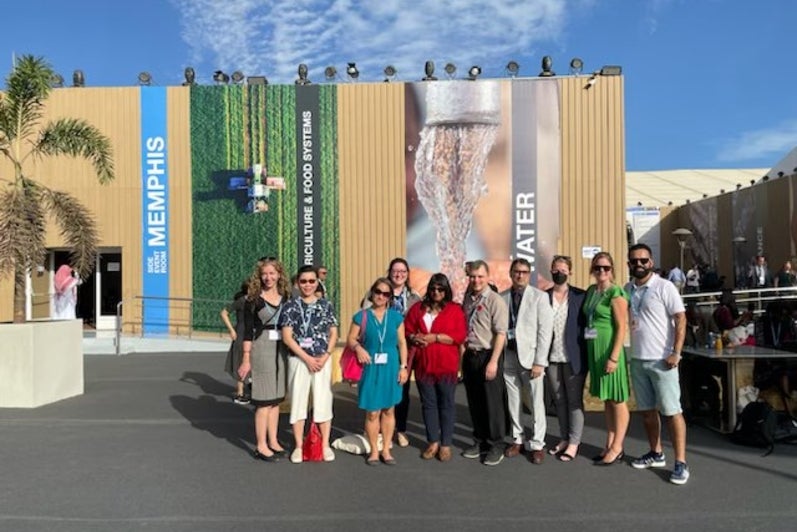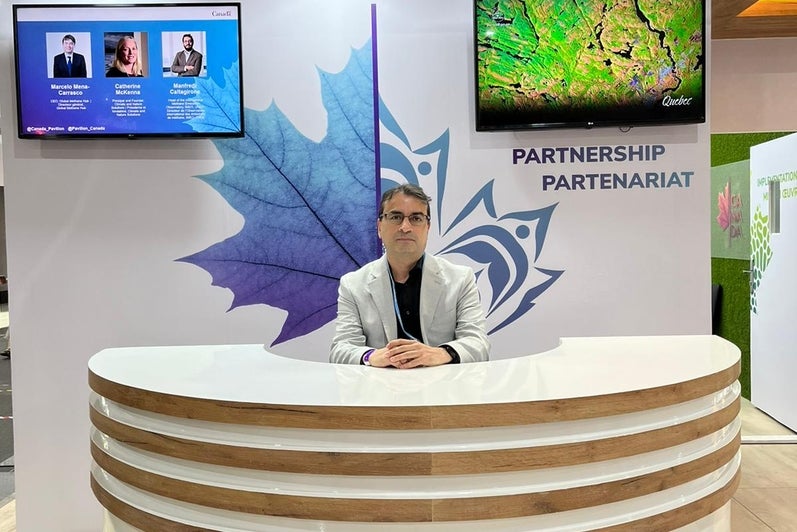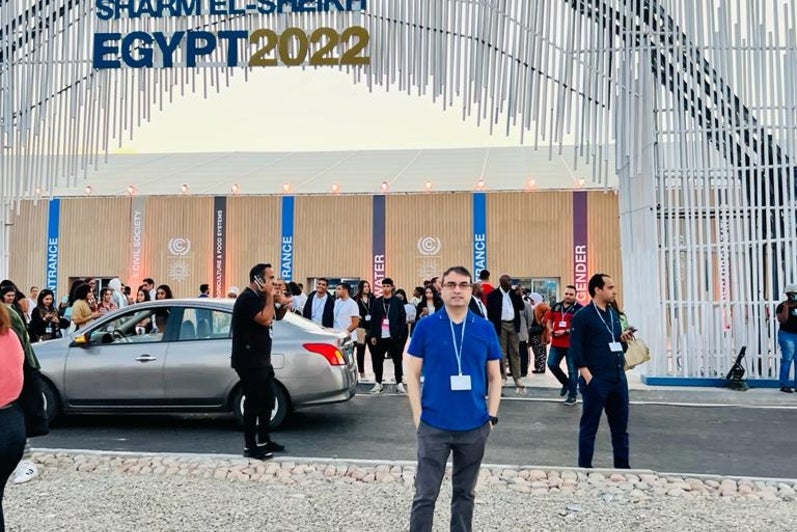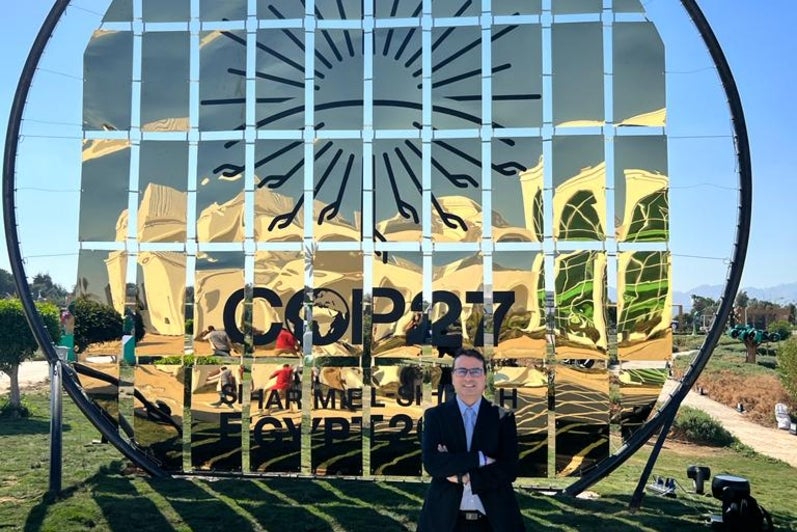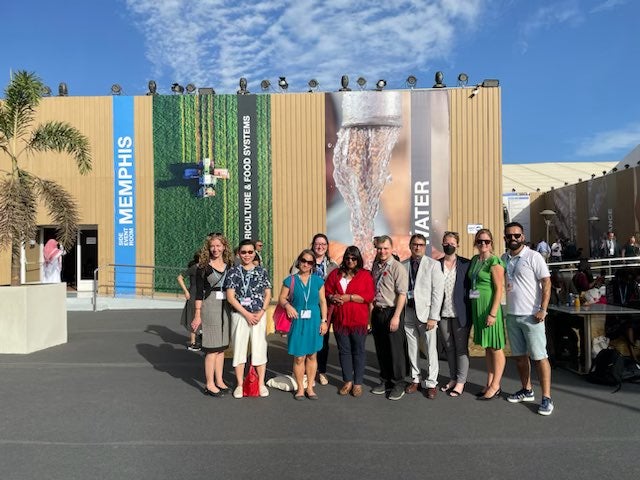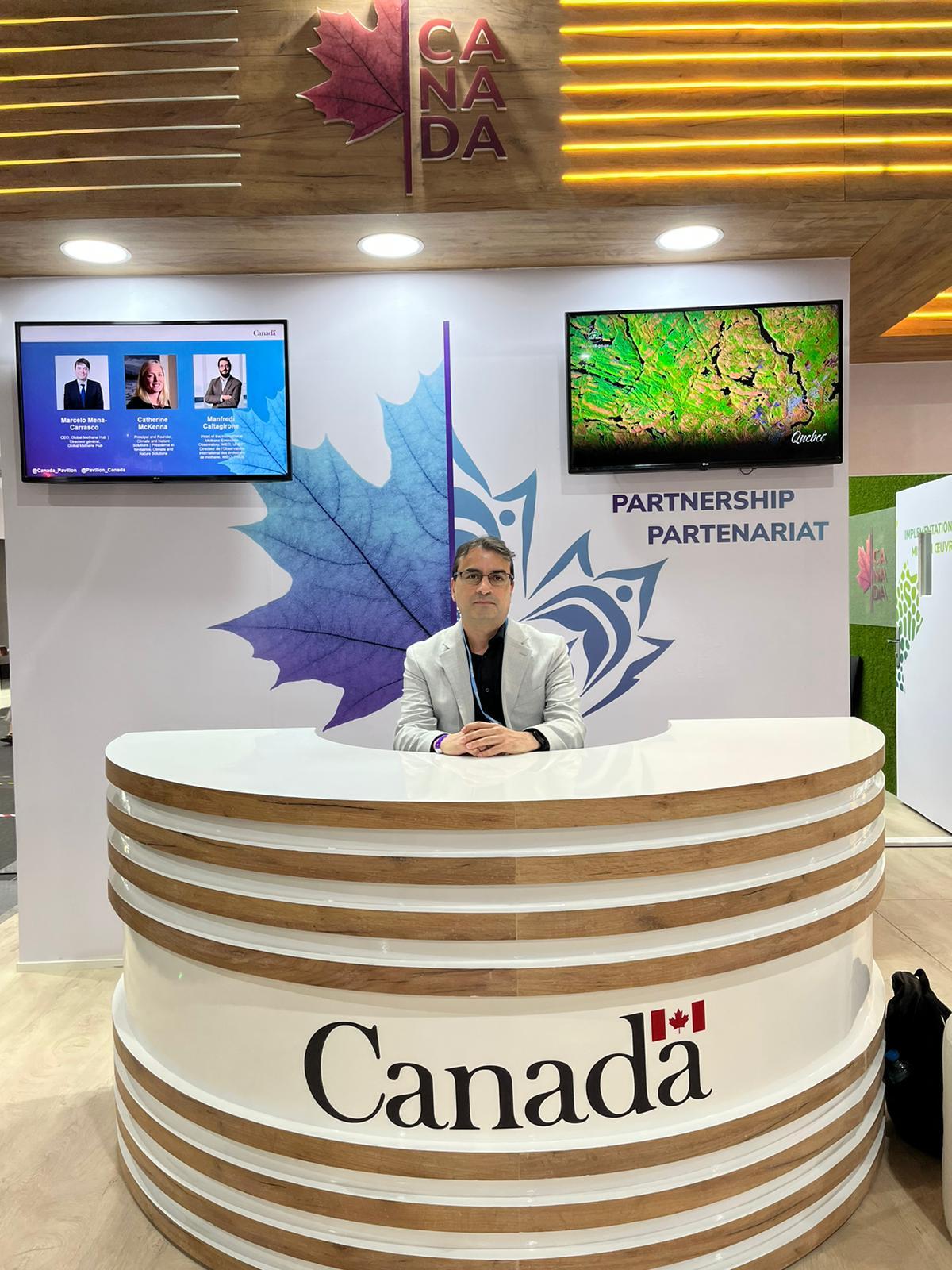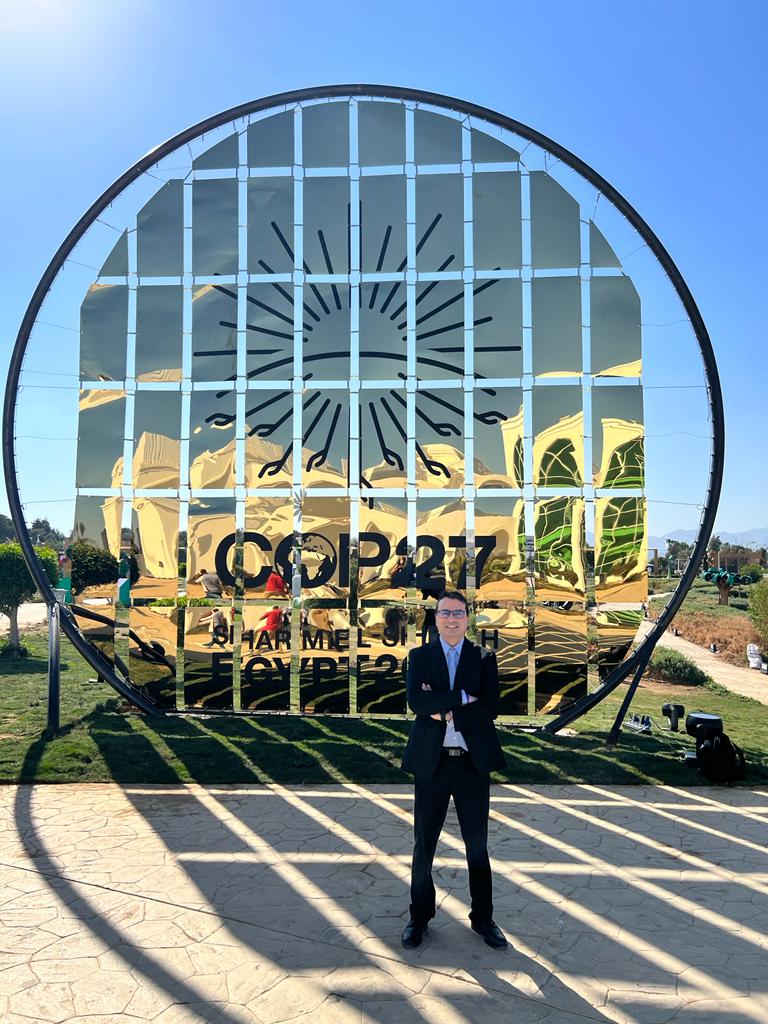COP27 through a public health lens
Estimated reading time: 2:15
As a public health researcher who attends mostly research conferences, COP27 was a new and interesting experience as it allowed me to interact with others beyond the academic community. I was able to connect with other researchers, policy makers, government officials, decision makers, climate activists and advocates – practically anyone interested in working together on the overarching goal of addressing climate change.
My research examines the interaction of climate change, infectious diseases, and social determinants of health through a syndemic perspective, which aims to bring together not only the health, socio-economic, and political consequences of diseases or conditions, but also an understanding of the complex interactions between different co-occurring diseases or conditions. In that sense, observing the different perspectives by diverse presenters on climate change, adaptation, and mitigation, echoes the complexity and collaboration required to address the key issues.
There were many interesting presentations looking at a systemic approach to climate change and health, such as
- Engaging and supporting NPHI’s as key climate actors,
- Planetary Health in the Eastern African context: Learning from the Global South, and
- Integrated Prevention of Non-Communicable Diseases, Nature Loss and Climate Crisis: Asthma and Allergy Showing The Way.
As an example, the International Association of National Public Health Institutes (IANPHI) aims to enhance the national public health institutes (NPHIs) capacity around the world to be key climate actors for climate mitigation and adaptation. This is done through capacity building in climate research, collaborations with national and international organizations (e.g., WHO, FAO), knowledge sharing, and mechanisms for monitoring progress of NPHIs in climate change policies. Their Roadmap for Action demonstrates this work.
Most of these discussions took place at the health pavilion, which was organized by the World Health Organization. But I was expecting to see more emphasis on health across the different pavilions at COP27 because we need to take a more integrated approach. At the systems level, I think we should be doing more in terms of implementing the ‘One Health’ framework to climate change as well as having concrete measures to prevent climate related health issues, especially in countries which are being impacted more by climate change. For example, climate change and mental health is a relatively neglected issue with limited mention in national adaptation plans and nationally determined contributions. Measures to reduce heat and ambient air pollution through urban redesign, and improved transportation, can provide mental health co-benefits by improving physical activity, sleep quality, social connectivity, and increasing access to green spaces. Integrating health across the various pavilions is a suggestion that I think could improve future COPs.
Overall, I found it worth while to observe the negotiations and felt it allowed me to experience firsthand the collective action that is needed to tackle the climate crisis that we face.
Contact us for media inquiries to learn more about this or other climate change related stories.
